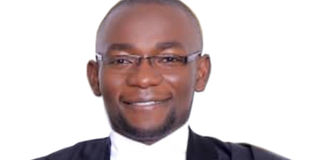Get on table and read the menu

Deus Mugabe
What you need to know:
“ Even if not on the table, there is no good explanation for being disinterested in the menu."
On December 20, 2021, the Organisation for Economic Co-operation and Development (OECD) released the long-awaited Pillar Two Module Rules. The module rules are part of the two-pillar approach to solve problems associated with the taxation of a digitalised economy.
When the international community set out to overhaul the international tax framework in 2013 through the BEPS project, action one (of the 15 action points) was devoted to the tax challenges arising from the digitalisation of the economy.
In 2015, the OECD/G20 Inclusive Framework released the BEPS final reports for all the 15 BEPS actions. The final report in respect to action 1 (dealing with the taxation of the digital economy) concluded that the digital economy could not be ringfenced and tackled alone.
In 2019, the OECD issued a policy note stating that taxation challenges brought by the digitalisation of the economy would be solved via a two-pillar solution.
Pillar one was devoted to allocation of taxing rights to market and user jurisdictions in situations where value is created by a business activity through participation in the users or market jurisdiction. Pillar Two would create taxing rights for a jurisdiction where the other jurisdiction applied a low tax rate below an agreed minimum tax rate (which has been agreed at 15 percent).
At its simplest, the module rules aim at ensuring that large multinational enterprises (whose consolidated revenues are more than Euros 750 million) pay a minimum level of tax on the income arising in each jurisdiction where they operate. Taxpayers in scope of the Module Rules calculate their effective tax rate for each jurisdiction where they operate and pay top-up tax for the difference between their effective tax rate per jurisdiction and the 15 percent minimum rate.
If, after this calculation, a top up tax arises, the same is paid in the jurisdiction of the ultimate parent of the multinational enterprise.
At a glance these rules may not be a big concern for a country like Uganda whose corporate tax rate is 30 percent way above the 15 percent. Moreover, one wonders how many companies that are in scope of the Module Rules have operations in Uganda! However, when one looks at the details of the Module Rules and reads the Income Tax Act, one cannot avoid the conclusion that Uganda is in quandary. Firstly, Uganda has several tax incentives that may be affected by the Module Rules which might in turn affect investment decisions which means that in fact the tax payable in Uganda may be lower than the 15 percent. It is expected that the OECD will deal with this issue in the coming guidance. Secondly, the Module Rules are complex and will pose daunting administrative challenges. Lastly, this is not the only change happening.
The current situation reminds me of the story about a dog owned by a hunter I used to hear as a young man. The dog in the story survived eating off the bones thrown to it by the hunter. Hopelessness for the dog was and is at its peak when the hunter starts to eat the bones. In taxation, Uganda is no dog and there is no hunter. But Uganda must be concerned lest it will be hopeless as the good dog. Too much is at stake for any country to fold its arms (as Uganda is doing). There is no published research by the relevant authorities and no consultative document has been issued on the taxation of the digitalised economy and how the same will affect Uganda.
The inclusive framework which is heavily involved in the formulation of a new tax order includes many developing countries and some African countries. Uganda is not a member of the Inclusive Framework (which puts us off the table). Even if not on the table, there is no good explanation for being disinterested in the menu. Uganda must conduct research on how the new and changing international tax regime affects the economy.
The author, Mr Deus Mugabe is a lawyer and an LLM Tax Candidate (Queen Mary University of London)




